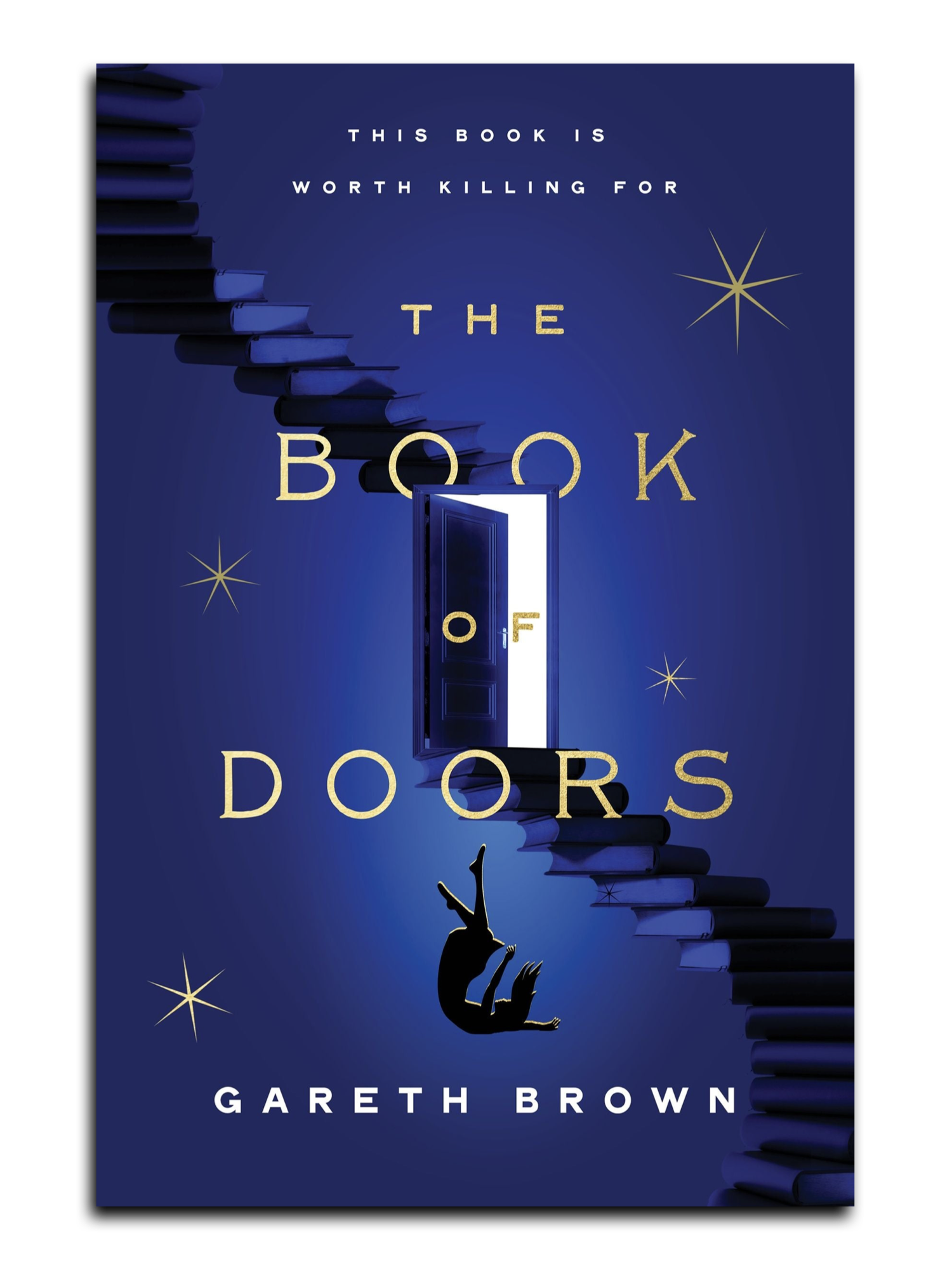The Book of Doors by Gareth Brown
We begin The Book of Doors with Cassie Andrews, a bookseller in New York City, when she receives a mysterious gift from a favorite customer: an enigmatic book filled with peculiar writing and drawings. Titled the Book of Doors, it seemingly grants to its possessor the ability to travel anywhere through any door. Excited by the newfound possibilities, Cassie begins going on mini-adventures, wherever a door will take her and her best friend Izzy, a reluctant and suspicious traveler via the Book of Doors. Before long however, Cassie and Izzy realize they're not the only ones with magical books. Thus they find themselves entangled in a dangerous world where book holders with sinister intentions are hunting down the long illusive Book of Doors, forcing Cassie to go on the run.
While The Book of Doors has a fantastic overall concept, complete with time travel and other magical books, the execution falls short in several key areas. The writing often veers toward oversimplification, with characterizations that are flat and overly simplistic. Characters are defined by one or two characteristics, lacking depth and complexity. The dialogue, with its outdated language (such as "Jap" — spoken as an off-the-cuff insult by a bad guy) feels out of place, seriously missing depth and nuance. Also, the portrayal of the antagonists as one-dimensional, mustache-twirling villains is disappointing, and lends itself to some cartoonish detours.
But perhaps one of the book's greatest flaws is in its unfocused plot, which progresses haltingly. The sheer abundance of magical books introduced throughout the narrative made me very aware of the author, who was potentially creating books out of the air — sort of a throw everything at the wall and see what sticks storytelling experience. Even the chapters themselves were unevenly dealt. In the more extended action sequences, Brown leaned into short chapters that never really ended, but stopped "in medias res," and continued immediately, not missing a beat, as the next chapter began. Unnecessary interruptions rather than meaningful transitions, disrupting the flow of the narrative into commercial breaks from tv in the 90s. This issue is juxtaposed and exacerbated by instances where significant time passes with little to no notable events occurring, leaving the reader disconnected from the story.
The Book of Doors is a debut novel with potential, hindered by issues of characterization, plot coherence, and pacing. One can't help but wonder about the role of the editorial process in addressing these shortcomings. Despite its flaws, the book offers glimpses of creativity and imagination, perhaps suggesting promise for future works from the author.
I received this book for free from the publisher via NetGalley in exchange for an honest review. This affected neither my opinion of the book nor the content of my review.

